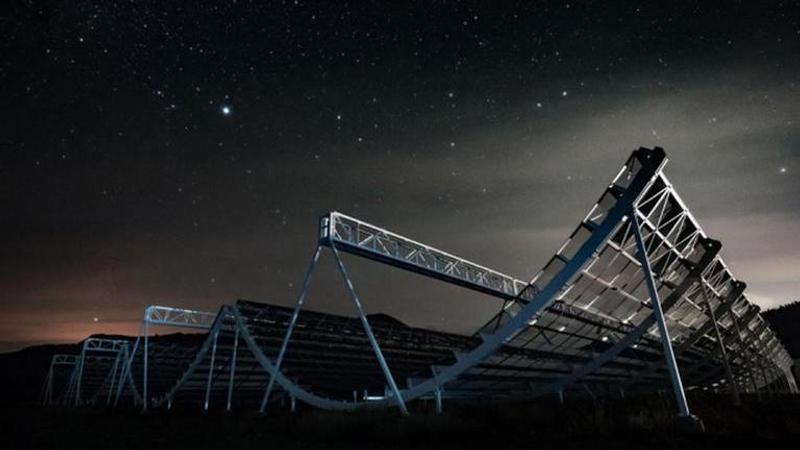Published 16:07 IST, June 19th 2020
Astronomers detect rhythmic fast radio bursts from unknown source outside galaxy
Astronomers and researchers have detected on “curious, repeating” rhythm of fast radio bursts emerging from an unidentified source outside the Milky Way.

Astronomers and researchers have detected on “curious, repeating” rhythm of fast radio bursts emerging from an unidentified source that is at least 500 million light-years away from the Milky Way. The team involving Massachusetts Institute of Technology (MIT) picked up on FRBs which are brief but intense flashes of radio waves are presumed to be originated from small, distant yet ‘extremely’ dense objects. However, the exact source remains a “longstanding mystery in astrophysics”. Moreover, according to the researchers, these FRB can last only for a span of few milliseconds but during that tome “they can outshine entire galaxies”.
The first of such Fast radio bursts were observed back in 2007 and since then the astronomers have catalogued more than a hundred FRBs that are a product of faraway sources outside our galaxy. However, the new FRB source that has been catalogued as FRB 180916.J0158+65 is first of its kind as it produces FRBs in a periodic manner. The astronomers have also found out that these patterns begin in a non-periodic manner for at least four days and then followed by 12-day silence. The entire 16-day pattern has been detected by the researchers continuously for over 500 days.
The researchers said, “This new FRB source, which the team has catalogued as FRB 180916.J0158+65, is the first to produce a periodic, or cyclical pattern of fast radio bursts. The pattern begins with a noisy, four-day window, during which the source emits random bursts of radio waves, followed by a 12-day period of radio silence.”
‘It's like a clockwork’
Kiyoshi Masui, assistant professor of physics in MIT’s Kavli Institute for Astrophysics and Space Research has said that the newly discovered source of FRB is like a “clockwork”. He has not only called it the “most distinctive pattern” but also a great hint to trace down the source that emits such bursts.
“This FRB we’re reporting now is like clockwork,” says Kiyoshi Masui. “It’s the most definitive pattern we’ve seen from one of these sources. And it’s a big clue that we can use to start hunting down the physics of what’s causing these bright flashes, which nobody really understands.”
Image: @MIT/Twitter
Updated 16:07 IST, June 19th 2020



